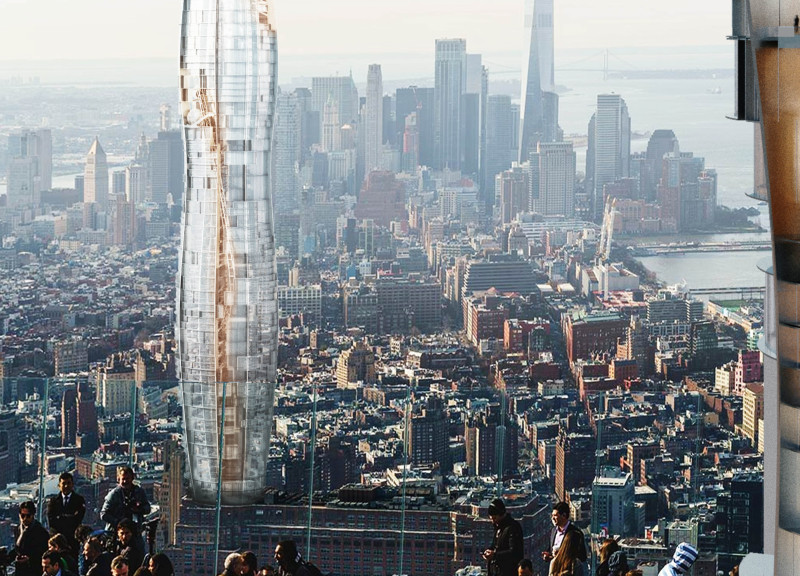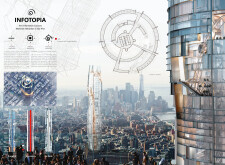5 key facts about this project
The architectural design incorporates a hybrid structure composed of reinforced concrete, steel frameworks, and glazed curtain walls. This combination allows for a visually engaging exterior while ensuring structural integrity. The façade combines transparency with reflective surfaces, promoting a dynamic interaction with the surrounding urban context. The integration of natural light through large openings and skylights reduces the need for artificial lighting, contributing to energy efficiency.
The layout of Infotopia emphasizes a vertical community hub, featuring open workspaces, collaborative zones, and interactive exhibition spaces. This arrangement allows users to navigate between different functions seamlessly, fostering spontaneous connections among occupants. Additionally, garden terraces and vertical gardens promote ecological balance and biodiversity, offering green spaces in an urban setting.
Innovative technology integration plays a crucial role in the project. Intelligent systems for lighting and climate control adjust according to occupancy levels, enhancing user comfort while optimizing energy usage. Sustainability is a guiding principle, with the selection of renewable materials and eco-friendly construction techniques further reducing the project's environmental impact.
Unique to Infotopia is its focus on creating layered social interactions through design. Spaces for minimal, medium, and maximum engagement cater to diverse user preferences, encouraging both personal reflection and community participation. This adaptability makes the project relevant in addressing contemporary urban life demands.
In summary, the Infotopia project embodies a forward-thinking architectural approach, balancing interaction and sustainability in a vibrant urban setting. For more details, readers are encouraged to explore the architectural plans, architectural sections, architectural designs, and architectural ideas associated with this innovative project to gain a deeper understanding of its thoughtful design elements.























